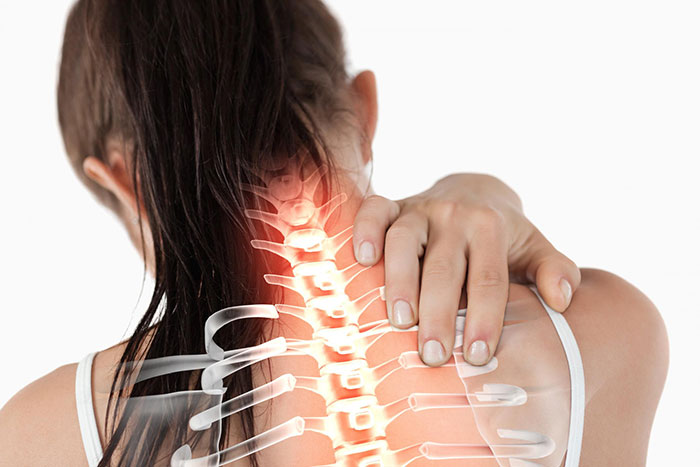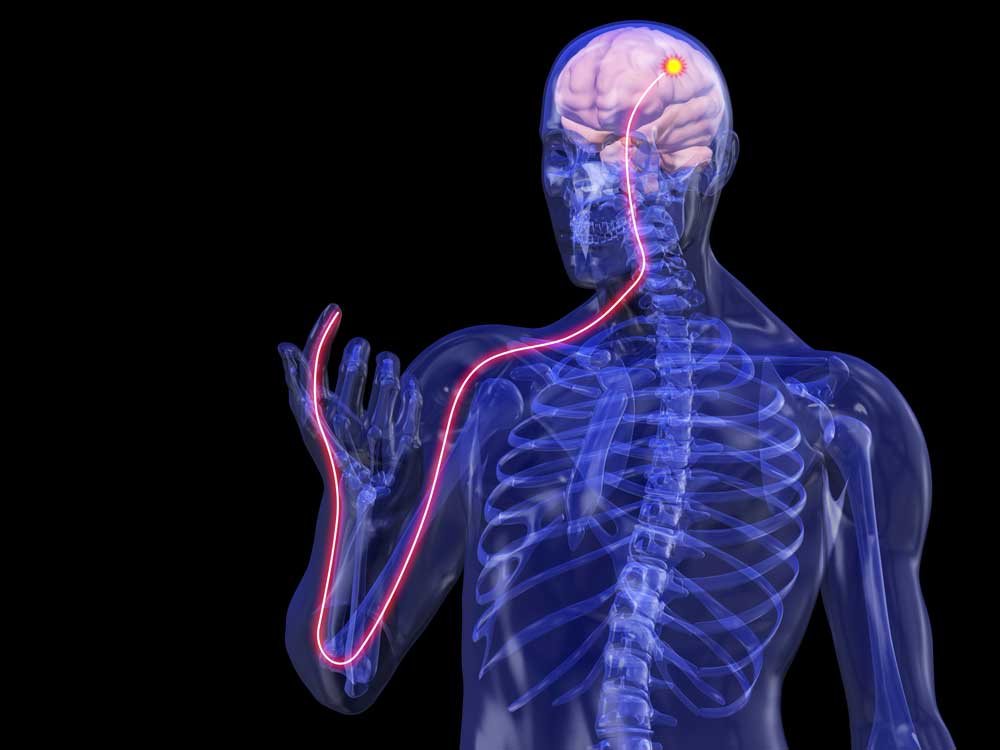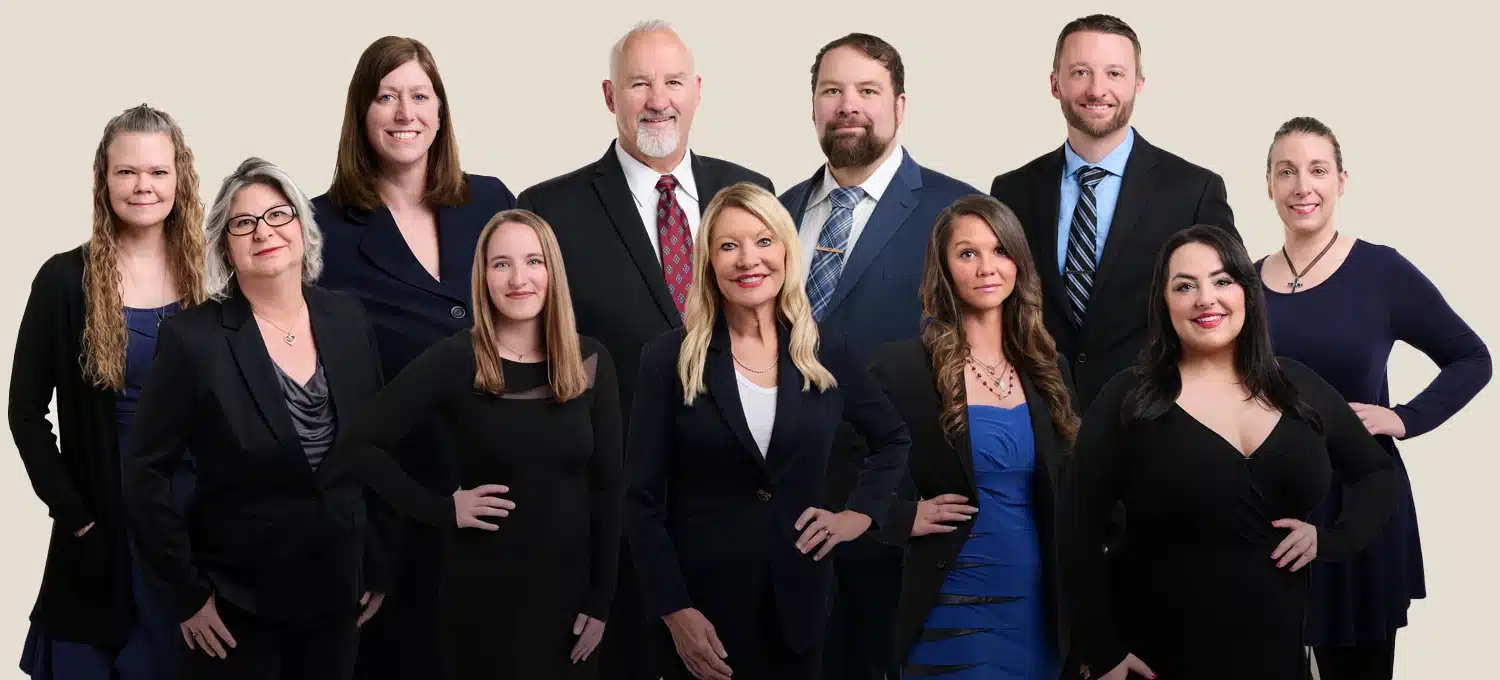Were you or a loved one recently diagnosed with CRPS?
Discover how to get workers’ compensation benefits for chronic pain.
On its own, a sudden and painful workplace injury can have serious consequences and lead to loss of wages, medical bills, and other costly consequences.
But what happens when the pain doesn’t stop?
When the injury is followed by a chronic condition or illness such as complex regional pain syndrome (CRPS) that last months or even years, the repercussions are so much greater. Since there’s no known cure to CRPS, the effects can be lifelong and leave you struggling with pain severely out of proportion to your original injury.
If you’re suffering from chronic pain as a result of a workplace injury, it’s vital you talk to a lawyer who can protect your well-being by securing the full and fair workers’ compensation or disability benefits owed to you.
At Murphy Law Firm, our team of experienced lawyers has represented injured workers in and around Great Falls, MT for over two decades. With 75+ combined years of experience, we can provide the professional legal representation you need to start you on the road to recovery following a CRPS diagnosis.
Why hire Murphy Law Firm?
- We put our clients first
- We ONLY represent the injured
- Compassionate, aggressive and personal legal representation
- Licensed attorneys with extensive legal knowledge
- 75+ years of combined experience
- We’ve recovered millions of dollars in settlements for our clients
- Contingency fee (you don’t pay unless we win)
- Free consultation
Attorney Thomas J. Murphy
Founder of Murphy Law Firm
While there’s no known cure for CRPS, our attorneys can fight to get you the workers’ compensation you deserve — while you focus on getting better again.
Case results
Murphy Law Firm has successfully represented thousands of Montanans, including complex workers’ compensation claims.
Overview of CRPS: Common Types, Symptoms & Factors
What is CRPS?
Complex regional pain syndrome (or CRPS), also formerly referred to as Reflex Sympathetic Dystrophy (RSD) and causalgia, is a chronic pain condition caused by an inflammation of the nerves as part of the body’s response to damaged tissue.
It typically occurs after a person suffers an injury to their bones, muscles, tissues or nerves, and triggers a constant flow of pain signals to the brain.
Bone fractures appear to be one of the most common causes of the development of CRPS.
CRPS Signs and Symptoms
While the symptoms of CRPS can vary greatly, this condition is usually accompanied by:
- A persistent burning or “pins and needles” sensation
- Swelling
- Stiffness
- Spreading pain
- Difficulty sleeping
- Chronic fatigue
- Sensitivity
- Aching
- Changes in your skin color
- Abnormal sweating in the affected area
Types of CRPS
There are two known types of CRPS:
- Type 1 (RSD). CRPS-I typically develops after a specific traumatic event, and the damage isn’t limited to a single nerve.
- Type 2 (Causalgia). CRPS-II results from nerve tissue damage. Pain is within the distribution of the damaged nerve but not generally confined to a single nerve.
CRPS Factors
Interestingly, CRPS is more common among women, affecting three times more women than men. The condition is also more common around age 40 than the elderly. That said, anyone can suffer from chronic pain — in any industry.
CRPS is an extremely debilitating condition and can occur following a workplace injury (or surgery to treat a workplace injury). If you are diagnosed with either type, you may be eligible for workers’ compensation benefits.
The Montana Department of Labor & Industry has published official utilization and treatment guidelines when it comes to complex regional pain disorder. “The purpose of these guidelines is to assist injured workers in receiving prompt and appropriate care, assist injured workers in stay-at-work/return-to-work options, assist clinicians in making decisions for specific conditions, and help insurers make reimbursement determinations.”
Visit the official Montana.gov site to view the full guidelines.
How Chronic Pain Can Affect Your Ability To Work
CRPS is a very serious injury that can permanently affect your ability to work and dramatically decrease your quality of life. In many cases, it can undermine your ability to return to the same type of work that you were performing prior to your injury. Although you can and should seek out medical care, there is no proven cure for the condition. Therefore, some patients may be permanently disabled.
According to Montana guidelines, the following factors should be considered when attempting to return an injured worker with chronic pain to work:
- An authorized treating physician should approve returning to work after a job history interview.
- Communication between the patient, authorized treating physician, employer and insurer is essential.
- Coordination of care and case management are key.
- Activity level restrictions should be implemented if needed, such as reduced number of hours and a jobsite evaluation.
- Returning to work should be thought of as therapeutic, and the work shouldn’t aggravate the basic problem or increase discomfort.
- Every attempt should be made to make work activities more adaptive and comfortable for the worker.
- Formal vocational assistance may be required to assist disabled persons return to viable employment.
Montana Workers’ Compensation Benefits for Chronic Pain & CRPS
Workers’ compensation insurance coverage is required by almost all employers in the state of Montana. In all but a few rare exceptions, workers who are injured on the job are eligible to receive benefits — including in cases of chronic pain and CRPS.
Depending on the severity of your injuries, you may be able to file for Social Security Disability benefits.
However, because chronic pain claims are often long-term and expensive for your employer and their insurance company, they may be unwilling or resistant to provide the compensation you require. As a result, you may need a lawyer who can represent you and help you recover benefits including:
- Temporary Partial Disability (TPD)
- Temporary Total Disability (TTD)
- Permanent Partial Disability (PPD)
- Permanent Total Disability (PTD)
The compensation you ultimately receive will depend on the severity of your condition and the long-term outlook for your recovery. Your attorney will need to work closely with your healthcare provider to determine how your injury will realistically affect your day-to-day life and secure your compensation accordingly.
Suffering From a Work-Related Accident? Schedule Your FREE Consultation for Help Now
While there is no known cure for CRPS, a skilled attorney can fight to get you the workers’ compensation you deserve while you focus on getting better again.
At the Murphy Law Firm, we’ve spent decades protecting the rights of injured Montana workers.
We’ve been able to recover over millions of dollars in wrongfully denied benefits for past clients.
We will pursue all remedies you need, while working with experts to establish liability and demand that insurers pay you what you’re owed under state law.
We may be able to help you obtain reimbursement and compensation for:
- Medical bills
- Lost wages
- Travel expenses
- Loss of consortium (income, companionship, child care, etc.)
- Emotional distress (pain and suffering)
- Punitive damages (money given as punishment)
Contact Murphy Law Firm today to schedule your free consultation.
“Honest, principled, and compassionate. Murphy Law is really about taking care of others and serving something much greater than themselves. They were incredibly helpful in guiding me through the entire process. Their knowledge and experience is vast. Exemplary work ethics. Often times I struggled, they were always there to support me. I am eternally grateful and truly inspired by the staff at Murphy Law Firm.”








